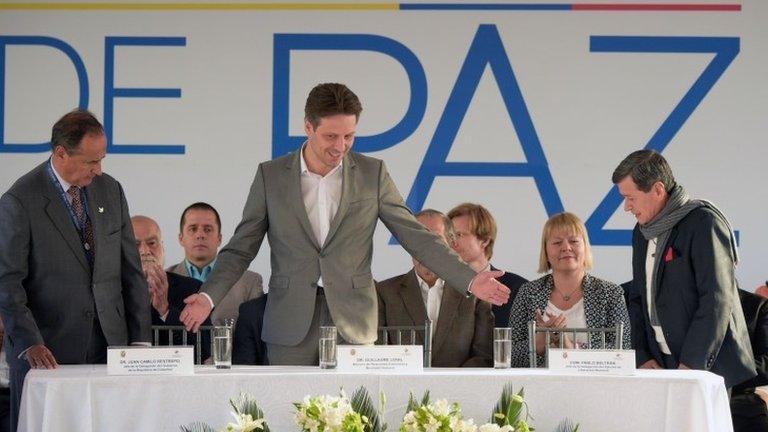Colombia's rebel ELN begins first truce in over half a century
- Published
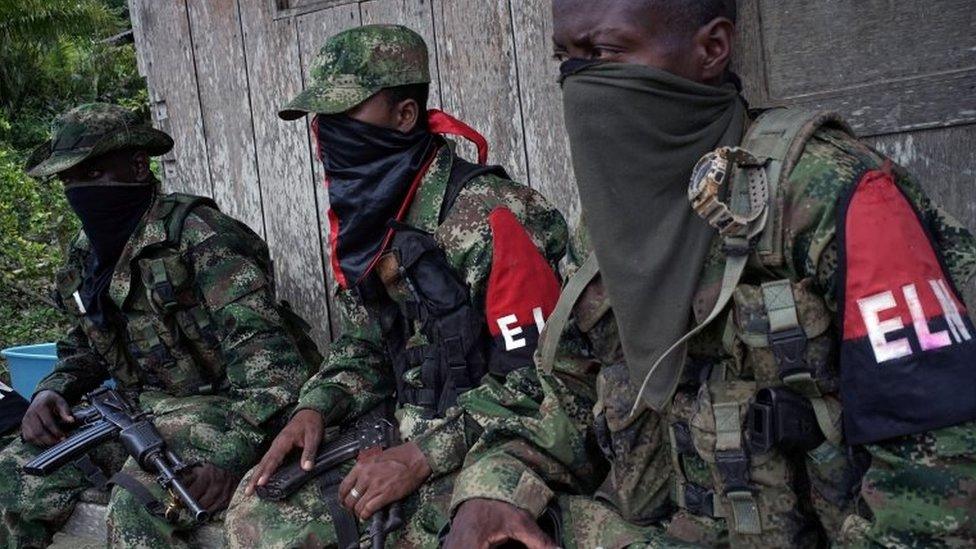
ELN rebels were ordered to cease all activity overnight
Colombia's largest active rebel group, the ELN, has begun a temporary ceasefire with the authorities - for the first time in more than 50 years.
The truce began on Sunday and is set to extend until mid-January.
President Juan Manuel Santos says he hopes it will serve as a first step to achieving peace with the group.
It follows a landmark peace deal between the authorities and the much larger Farc rebel group last year, which ended five decades of conflict.
The temporary ceasefire between the National Liberation Army (ELN) and the Colombian army is seen as the most important step taken since peace talks between the two sides began in neighbouring Ecuador in February.
ELN leader Nicolás Rodriguez ordered his troops to "cease all types of offensive activities to fully comply with the bilateral ceasefire" overnight, just as Colombia's armed forces were instructed to suspend operations against the rebels.
Despite continuing negotiations for the past eight months, the run-up to the truce has been marred by ELN attacks on security forces and hostage taking, as well as attacks on oil companies.
ELN finances its operations mainly with ransom payments given to release hostages.
However, according to terms laid out in the truce, the rebel group has pledged to stop hostage taking, attacks on roads and oil installations, the use of landmines and recruiting minors.
In return, the government has agreed to improve prison conditions for about 450 rebels and step up protection for community leaders, many of whom have been increasingly targeted by violence since the start of 2016.
The last guerrillas fighting in Colombia's armed conflict speak to the BBC
UN monitors have been sent to observe conditions on the ground, as well as government and rebel representatives, and officials from the Catholic Church.
The ELN guerrilla group is believed to have fewer than 1,500 active fighters, who are backed by a larger number of "militants" or sympathisers providing logistical support.
Its strongholds are in rural areas in the north and on the border with Venezuela, and also in the provinces of Casanare, Norte de Santander and Cauca.
The next round of talks is set to take place in the Ecuadorian capital of Quito on 23 October.
- Published4 September 2017
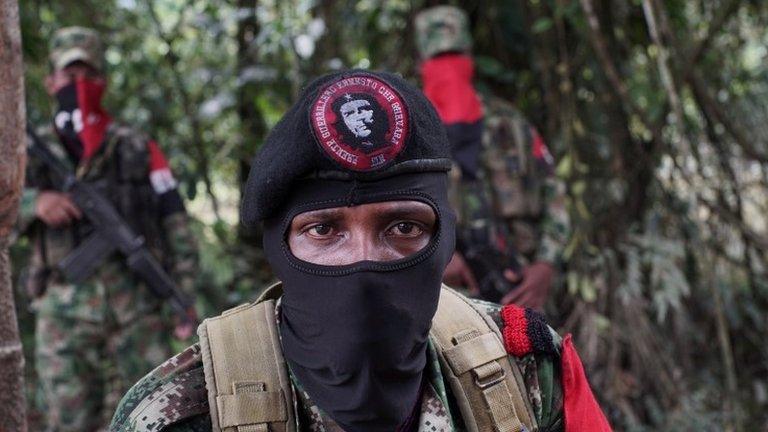
- Published3 September 2017
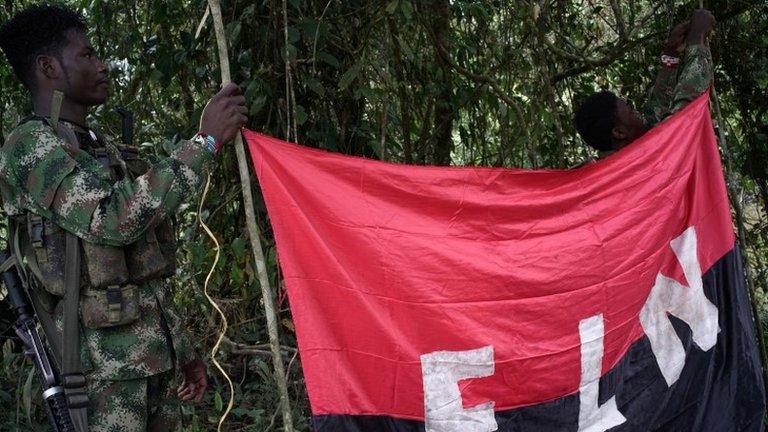
- Published24 June 2017
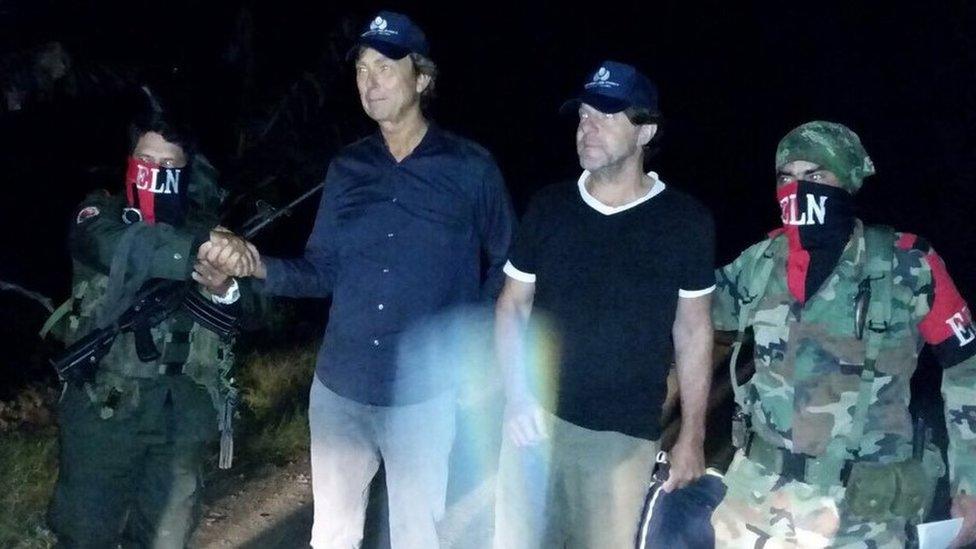
- Published19 May 2017
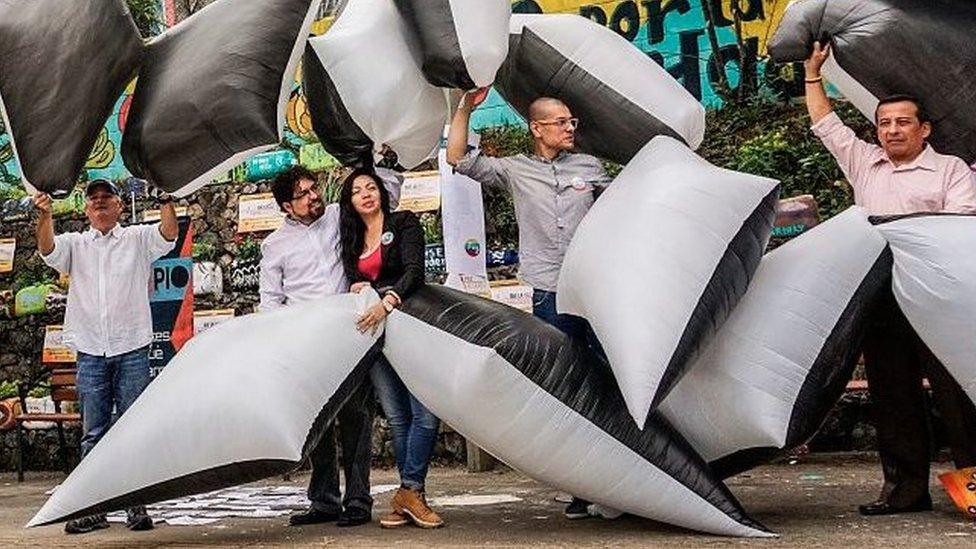
- Published8 February 2017
